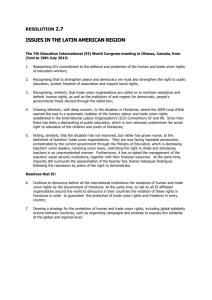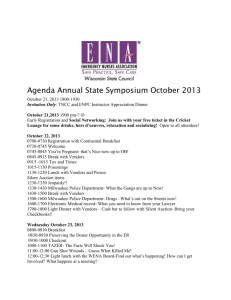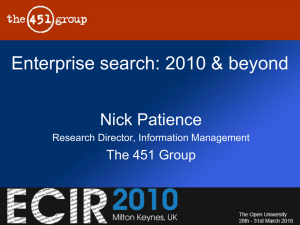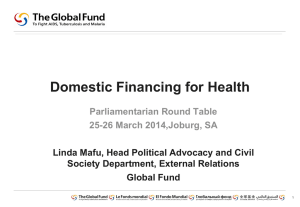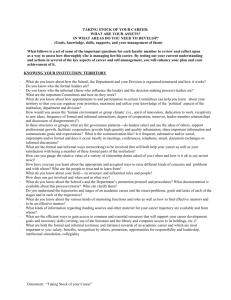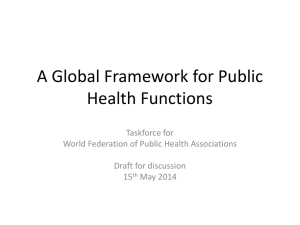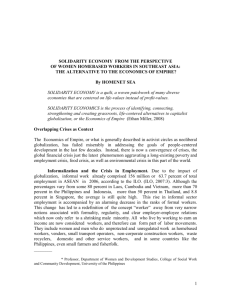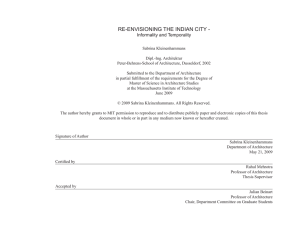Workshop: Civic Education for Advocacy
advertisement
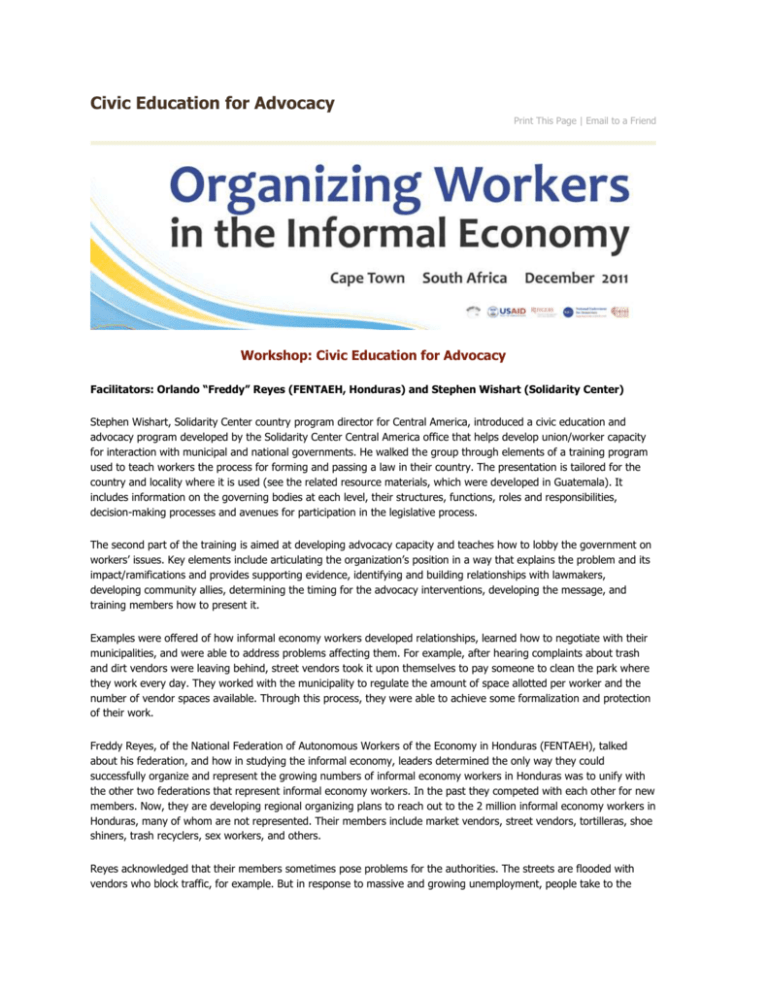
Civic Education for Advocacy Print This Page | Email to a Friend Workshop: Civic Education for Advocacy Facilitators: Orlando “Freddy” Reyes (FENTAEH, Honduras) and Stephen Wishart (Solidarity Center) Stephen Wishart, Solidarity Center country program director for Central America, introduced a civic education and advocacy program developed by the Solidarity Center Central America office that helps develop union/worker capacity for interaction with municipal and national governments. He walked the group through elements of a training program used to teach workers the process for forming and passing a law in their country. The presentation is tailored for the country and locality where it is used (see the related resource materials, which were developed in Guatemala). It includes information on the governing bodies at each level, their structures, functions, roles and responsibilities, decision-making processes and avenues for participation in the legislative process. The second part of the training is aimed at developing advocacy capacity and teaches how to lobby the government on workers’ issues. Key elements include articulating the organization’s position in a way that explains the problem and its impact/ramifications and provides supporting evidence, identifying and building relationships with lawmakers, developing community allies, determining the timing for the advocacy interventions, developing the message, and training members how to present it. Examples were offered of how informal economy workers developed relationships, learned how to negotiate with their municipalities, and were able to address problems affecting them. For example, after hearing complaints about trash and dirt vendors were leaving behind, street vendors took it upon themselves to pay someone to clean the park where they work every day. They worked with the municipality to regulate the amount of space allotted per worker and the number of vendor spaces available. Through this process, they were able to achieve some formalization and protection of their work. Freddy Reyes, of the National Federation of Autonomous Workers of the Economy in Honduras (FENTAEH), talked about his federation, and how in studying the informal economy, leaders determined the only way they could successfully organize and represent the growing numbers of informal economy workers in Honduras was to unify with the other two federations that represent informal economy workers. In the past they competed with each other for new members. Now, they are developing regional organizing plans to reach out to the 2 million informal economy workers in Honduras, many of whom are not represented. Their members include market vendors, street vendors, tortilleras, shoe shiners, trash recyclers, sex workers, and others. Reyes acknowledged that their members sometimes pose problems for the authorities. The streets are flooded with vendors who block traffic, for example. But in response to massive and growing unemployment, people take to the streets to sell mangos or avocados or whatever they can to bring in a little income. They have no other employment alternatives, and they are hungry. Seventy percent of vendors are women. Older people and children also are affected. The federation is currently offering basic training to members. The national center supports the program, providing space and trainers; the Solidarity Center assists. FENTAEH has developed draft legislation aimed at providing some formalization and protection for own-account/selfemployed workers (see draft in resource materials). The draft resulted from six months of workshops, working group meetings, and an evaluation. It defines own-account/self-employed workers; establishes their right to representation and collective bargaining; and prohibits discrimination, forced labor, and child labor. The draft has been presented to the congress, the president, and the judicial branch. The federation is now working on spreading the word about the proposed legislation to informal workers, as well as developing support and alliances to promote its passage.
